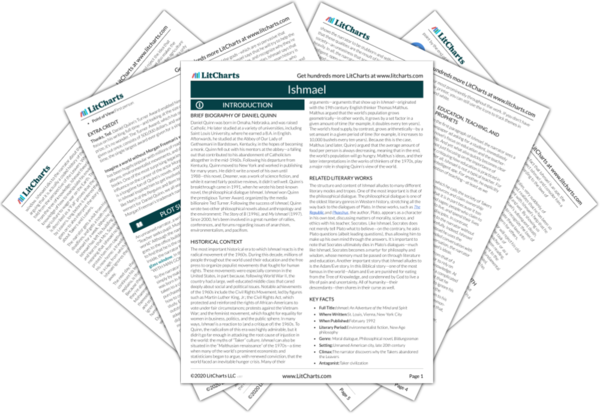LitCharts assigns a color and icon to each theme in Ishmael, which you can use to track the themes throughout the work.
Education, Teaching, and Prophets
Fiction, Storytelling, and Truth
Cynicism, Misanthropy, and the Failure of the 1960s
Humans, the Environment, and Extinction
